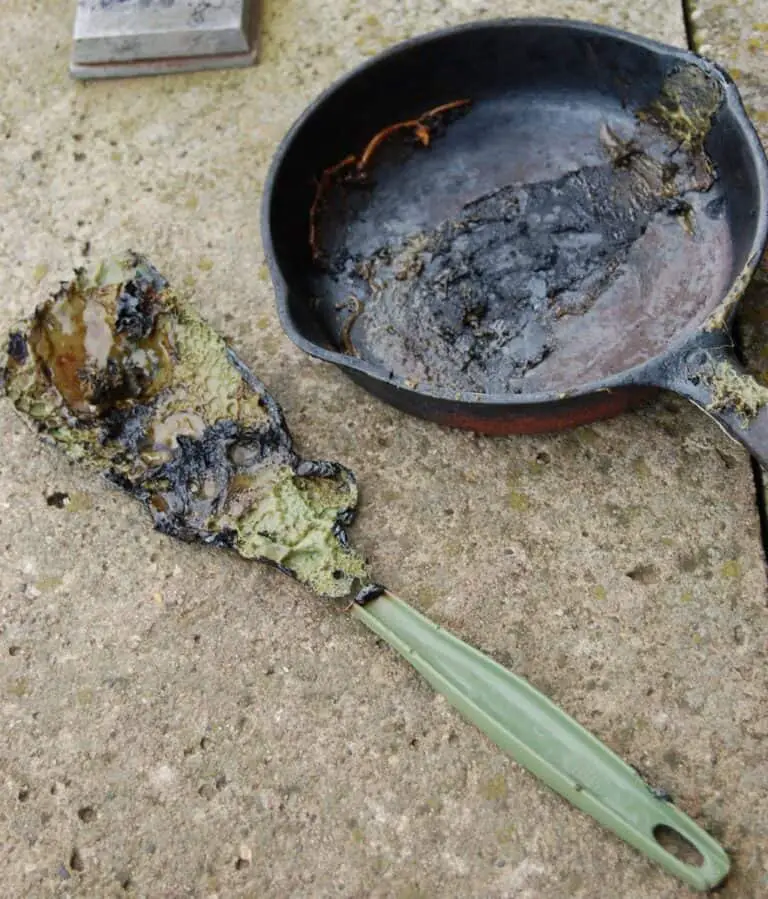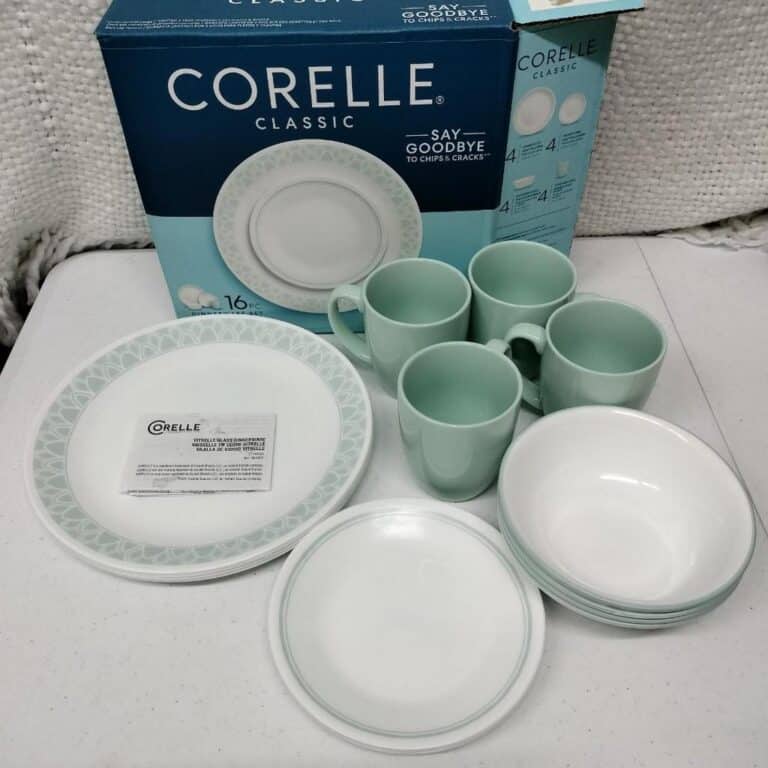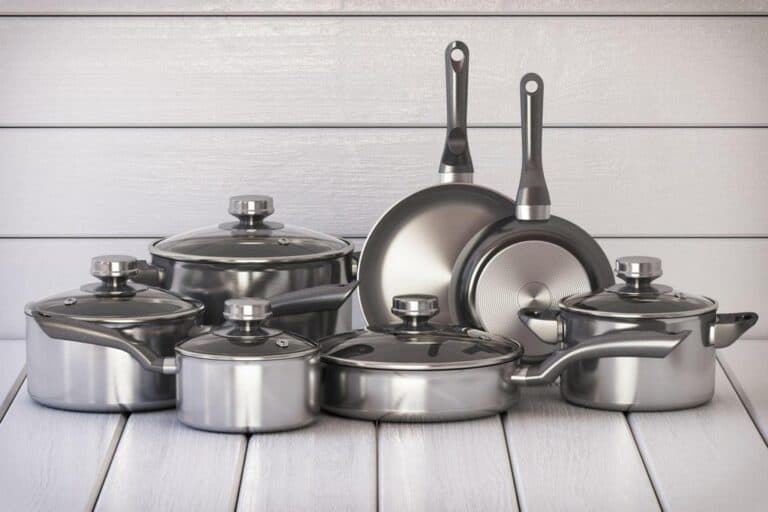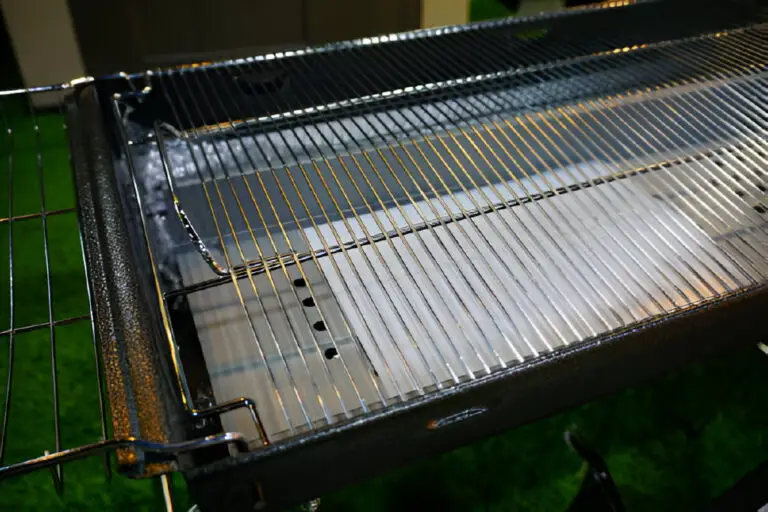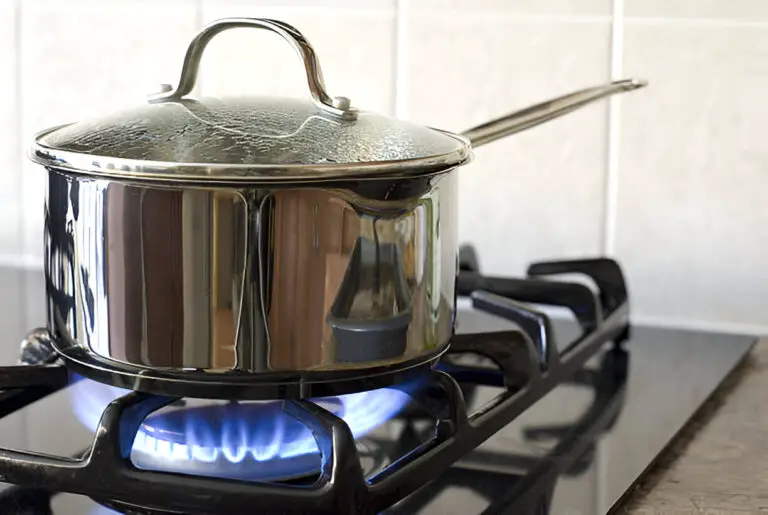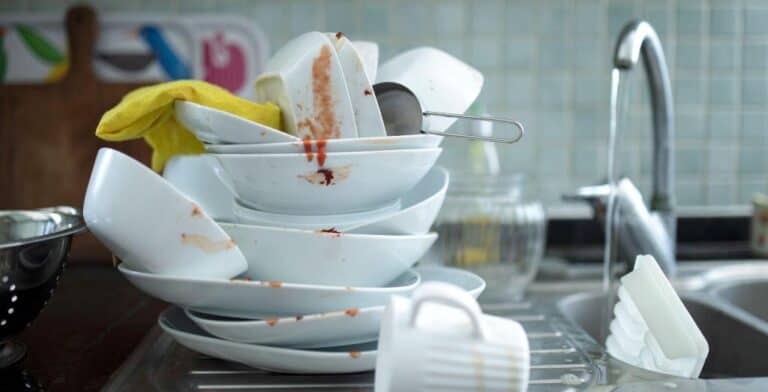Melted Plastic on Glass Stovetop: How To Remove It Safely?
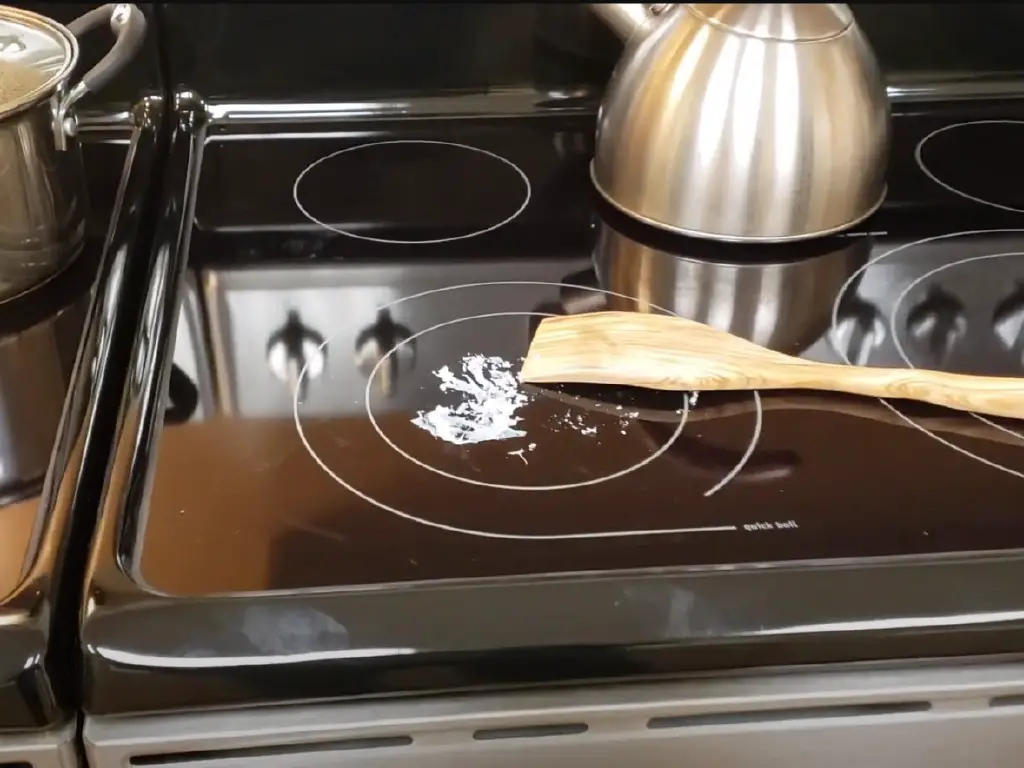
Accidents happen in the kitchen, and one of the most common mishaps is melted plastic on the glass stovetop. Whether it’s from leaving a plastic bag too close to the heat or accidentally spilling plastic containers on the surface, melted plastic can be a difficult and stubborn mess to clean up.
But don’t despair! With the right tools and techniques, removing melted plastic from your glass stovetop can be a breeze.
In this blog post, we’ll guide you through the process of safely and effectively removing melted plastic, so you can keep your stovetop looking like new.
What Causes Plastic Melted on Your Glass Stovetop?
There are several factors that can cause plastic to melt on your glass stovetop. One of the most common causes is the use of plastic utensils or cookware on the stovetop.
When plastic comes into contact with high heat, it can easily melt and stick to the stovetop. This can be a problem when using plastic spatulas or tongs, as the plastic spatula can easily melt and leave behind a sticky residue.
Another common cause of plastic melting on a glass stovetop is the use of plastic bags or containers. These items should never be placed directly on the stovetop, as they can melt and cause a mess. Instead, they should be put on a trivet or another surface that won’t melt from the heat.
Leaving the stovetop unattended while cooking is a possible cause. If you are not paying attention to what is happening on the stovetop, melted plastic can happen very quickly. It’s important to keep an eye on your cooking and to be aware of what is happening on the stovetop at all times.
Lastly, an old or damaged stovetop can also cause melted plastic. If the heating element is not functioning properly, it can cause the plastic to melt at a lower temperature than normal. This can be dangerous and can cause a fire hazard. Make sure your stovetop is in good working condition and to have it serviced if you notice any issues.
What Happens When Plastic Is Melted on a Glass Stovetop?
When plastic is melted on an glass stovetop, it can cause a variety of problems. One of the most obvious issues is the mess it can create. Melted plastic can stick to the stovetop and be difficult to remove, leaving behind a sticky residue that can be hard to clean. If the plastic is not removed quickly, it can harden and become even more difficult to remove.
Another problem caused by melted plastic on an glass stovetop is the risk of fire. When plastic melts, it can release chemicals and fumes that can be flammable. If the melted plastic comes into contact with an open flame, it can easily catch fire.
Melted plastic on an electric glass stovetop can also damage the stovetop itself. The plastic can stick to the heating element and cause it to malfunction. This can lead to uneven heating and potentially cause a fire hazard. Melted plastic can also damage the stovetop’s surface, making it difficult to use in the future.
Lastly, melted plastic on a glass stovetop can release harmful toxins and fumes into the air that can be harmful to inhale. These fumes can cause respiratory problems and aggravate asthma and other lung conditions. Keep the air moving and do not breathe in the smoke from the melted plastic.
How Dangerous is Burned Melted Plastic?
When melted plastic is burned, many dangerous chemicals are released into the air, such as dioxins, furans, and polycyclic aromatic hydrocarbons (PAHs). Especially dioxins and furans, these chemicals from melted plastic are very dangerous and can cause cancer, damage the immune system, mess up reproduction and development, and cause other health problems. PAHs are carcinogenic and can cause skin and lung irritation.
Also, when plastic is burned, it sends harmful chemicals into the air, such as carbon monoxide, nitrogen oxides, and small particles. If you breathe in the smoke from burned plastic, it can hurt your lungs and other organs and make it hard to breathe, like with asthma or bronchitis.
WARNING
If you eat food with melted plastic or are exposed to these toxins for a long time, you may be more likely to get cancer or have other serious health problems, and you may also have trouble getting pregnant or having children.
The burning of plastic also has a negative impact on the environment. It can harm plants and animals, compromise air and water quality, and worsen climate change. So, it’s better to get rid of plastic the right way and not burn it, since that can be bad for both people and the environment.
Safety Precautions Before Removing Plastic
When removing melted plastic from a glass stovetop, safety should always be a top priority. This is because melted plastic can give off poisonous fumes when exposed to high heat, and the stovetop can also get hot enough to cause burns. Follow these safety rules to make sure that you can remove the melted plastic in a safe and effective way:
- Unplug the stove. Before attempting to remove the melted plastic, it is essential to unplug the stove to avoid the risk of electric shock.
- Wear heat-resistant gloves. It is important to wear heat-resistant gloves to protect your hands from the heat and any toxic fumes that may come from the melted plastic.
- Ventilate the area. If possible, open windows or turn on fans to provide ventilation and help dissipate any toxic fumes generated by the melted plastic.
- Avoid using abrasive materials. Abrasive materials such as steel wool or harsh chemicals can scratch the surface of a glass stovetop, making it more difficult to remove the melted plastic. Instead, use a plastic scraper or a solution of hot water and vinegar to remove the melted plastic.
By following these safety precautions, you can ensure that you can remove melted plastic from a glass stovetop safely and effectively, without putting yourself or your kitchen at risk. Take these steps seriously, as melted plastic can be a hazard if not handled properly.
How To Remove Melted on a Glass Stovetop
To remove the melted plastic from a glass stovetop, you will need to follow a few steps. Here is a detailed explanation of how to remove melted plastic safely and effectively:
- Let the stove cool down: Before attempting to remove the melted plastic, it is important to allow the stove to cool down completely. This will reduce the risk of injury and make it easier to remove the melted plastic.
- Soften the melted plastic: To make the melted plastic easier to remove, you can use a solution of hot water and vinegar. Simply place a cloth soaked in the solution on the melted plastic and let it sit for a few minutes to soften the plastic.
- Use a plastic scraper: Once the melted plastic has been softened, you can use a plastic scraper to carefully remove the plastic from the stovetop. Use a plastic scraper, as other materials such as a metal scraper or knife can scratch the surface of the glass stovetop.
- Repeat the process: If necessary, repeat the process of softening the melted plastic and using a plastic scraper until all of the melted plastic has been removed from the stovetop.
By following these steps, you can safely and effectively remove melted plastic from a glass stovetop. It is important to be patient and take your time, as rushing the process can cause more damage to the stovetop or result in injury.
Cleaning Glass Stovetop after Removing the Melted Plastic
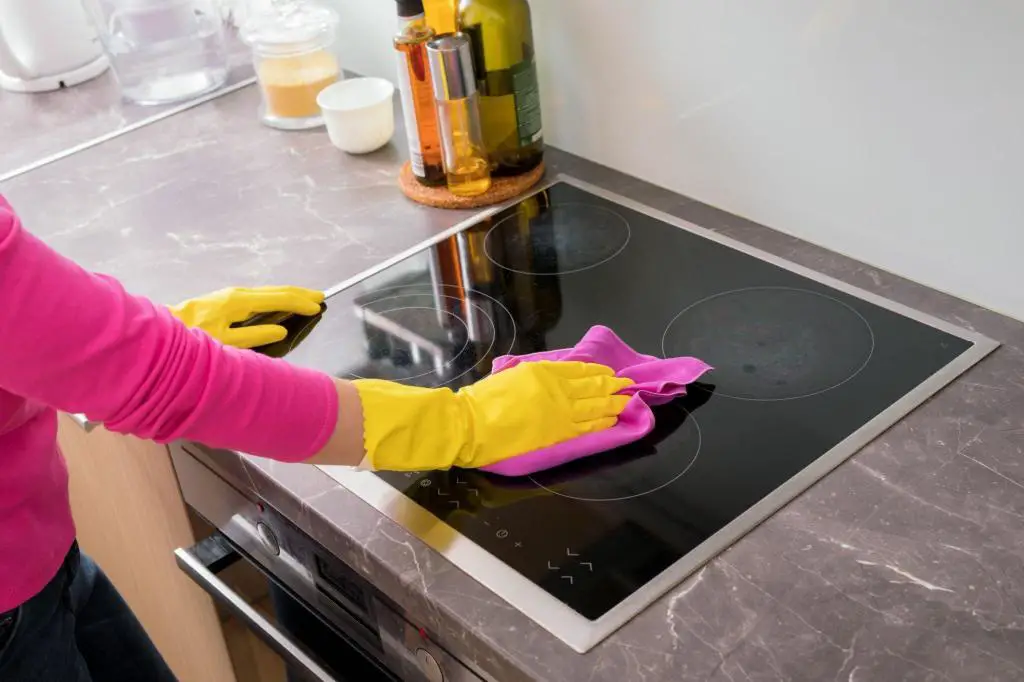
After getting the melted plastic off a glass stovetop, you need to clean it to get it back to how it was. Here is a full explanation of how to clean the stovetop after melting plastic has been removed:
- Use a degreaser: To remove any residue left behind by the melted plastic, it is recommended to use a degreaser. Simply apply the degreaser to a cloth and wipe the stovetop clean, taking care to remove any grease or grime that may have accumulated on the surface.
- Use a non-abrasive cleaner: Once the degreaser has been applied, it is important to clean the stovetop with a non-abrasive cleaner to remove any remaining residue. A non-abrasive cleaner is less likely to scratch the surface of the glass stovetop and will help to restore its shine and clarity.
- Rinse with water: After cleaning the stovetop with a non-abrasive cleaner, rinse the stovetop with water to remove any remaining cleaning solution. This will help to prevent any residue from building up on the surface of the stovetop and affecting its performance.
- Dry the stovetop: To prevent water spots from forming on the surface of the stovetop, dry the stovetop thoroughly after rinsing it. You can use a clean cloth or paper towels to dry the stovetop, or simply allow it to air dry.
Preventing Melted Plastic from Burning and Sticking to the Stovetop
It’s important to keep melted plastic from sticking to the stovetop so that it works well and doesn’t have to be cleaned often. Here are some things you can do to keep plastic from sticking to your glass stovetop:
- Use stovetop covers. One of the best ways to prevent melted plastic from adhering to the stovetop is to use stovetop covers. Stovetop covers are designed to protect the surface of the stovetop from spills and splatters, and can be easily removed and cleaned when necessary.
- Keep the stovetop clean. Keeping the stovetop clean is essential for preventing melted plastic from adhering to its surface. Regular cleaning will help to remove any residue or grime that may be present, reducing the risk of melted plastic adhering to the stovetop.
- Avoid using plastic cookware. Plastic cookware can easily melt when exposed to high heat, so it is best to avoid using it on a glass stovetop. Instead, use cookware made from materials such as stainless steel or cast iron, which are less likely to melt and will not pose a risk to the stovetop.
- Keep an eye on the stove. It is important to keep an eye on the stove when cooking, especially when using plastic containers or plastic food packaging. If you notice any plastic beginning to melt, remove it from the stovetop immediately to prevent it from adhering to the surface.
Does Vinegar Damage Glass Top Stoves?
Glass-top stoves are a popular choice for many homeowners because of their sleek and modern appearance. However, cleaning these types of stoves can be a bit tricky, as harsh abrasive cleaners can scratch the surface and leave permanent marks. This is why many people wonder if vinegar, a common household cleaning product, can damage glass-top stoves.
The short answer is no; vinegar does not damage glass-top stoves. In fact, it can be an effective way to clean the stove top and get rid of tough stains and grime.
Vinegar is a natural acid that can break down and dissolve dirt and grime, making it easy to wipe away. It is also gentle enough to use on a regular basis without fear of scratching or damaging the stove surface.
Baking soda is another common household product that can be used to clean glass-top stoves. It is a mild abrasive that can remove tough stains and grime without scratching the stove surface. When combined with vinegar, baking soda creates a powerful cleaning solution that can remove even the toughest stains from your glass-top stove.
Take note that vinegar and baking soda are gentle enough to use on glass-topped stoves. Harsh abrasive cleaners such as steel wool or scouring pads should be avoided. These types of cleansers can scratch the stove surface and leave permanent marks. Instead, it’s best to use a soft cloth or sponge to clean your glass-topped stove and to avoid using any abrasive materials that could scratch the surface.
Conclusion
Melted plastic on a glass stovetop can be a challenging issue to deal with, but with the right tools and techniques, it can be removed safely and effectively. If you follow the steps in this guide, you can clean your stovetop and get it back to the way it was before the plastic melted. Also, if you take steps to keep melted plastic from sticking to the stovetop in the first place, you can keep it working well and avoid having to clean it as often.
In conclusion, melted plastic on a glass stovetop is a common problem that is easy to fix. By following the steps in this guide, you can safely remove melted plastic, clean the stovetop well, and prevent it from sticking to the surface again. With proper care and maintenance, your glass stovetop will stay in great condition for years to come.

